Projects
At any one time, PML is undertaking around 100 research projects with science and interests stretching from local to global, from lakes to oceanic environments. We collaborate in research projects across the world, and the length and breadth of the global ocean from the poles to the tropics.
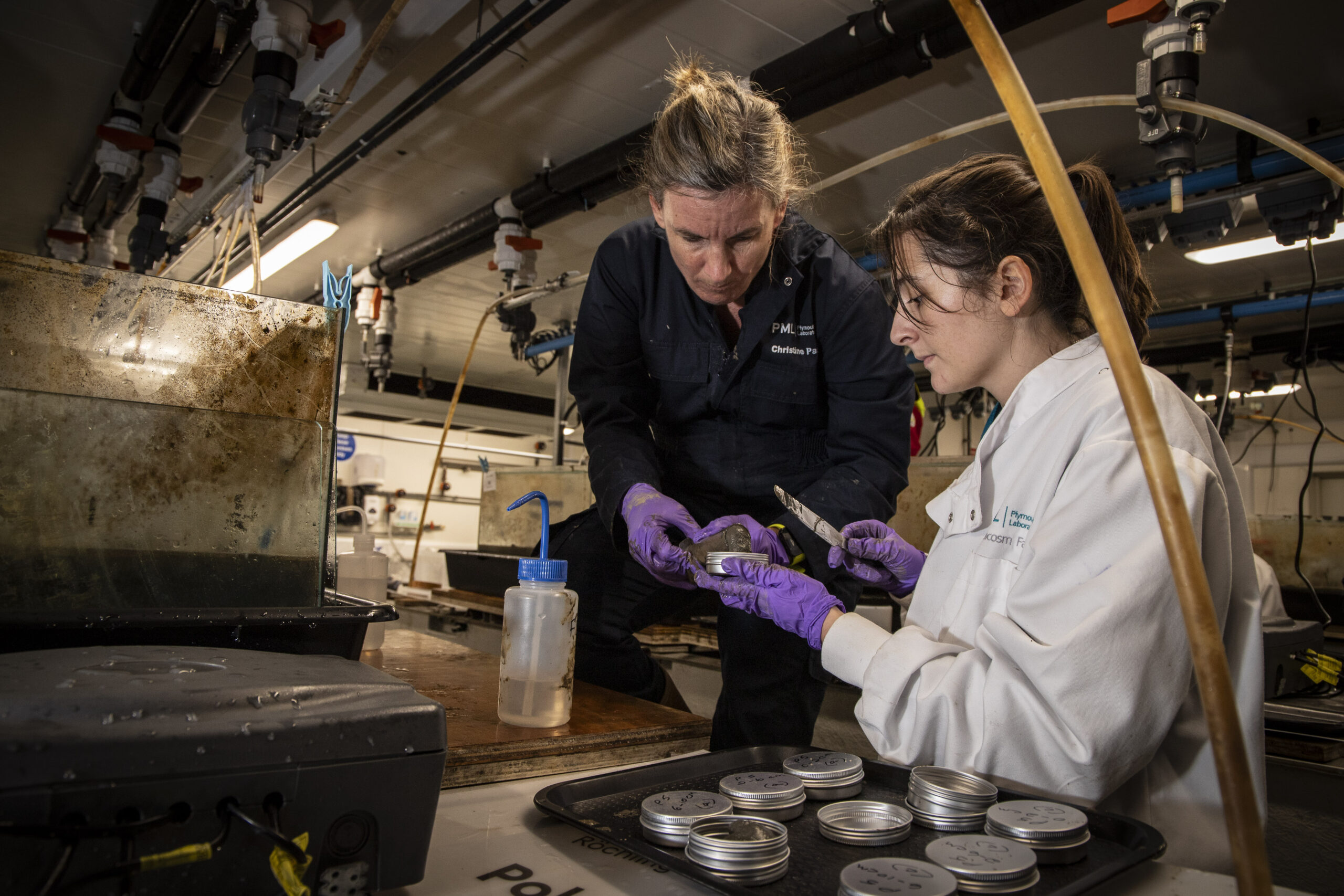
Our strategic research feeds into national and international strategies such as for the UK and other governments or regulators, and maps onto strategies of public sector bodies, space agencies, charitable foundations and philanthropists, NGOs and industry.
Here you can find a selection of our current and archived projects:
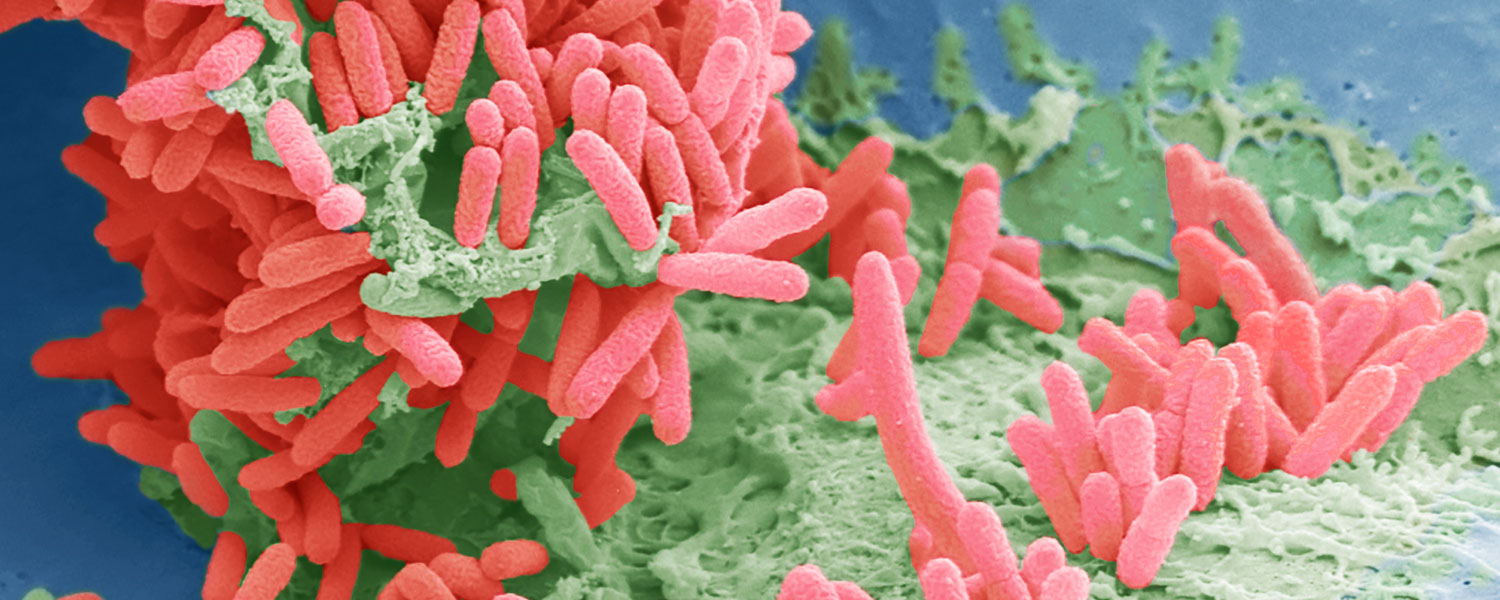
The oceans, and in particular coastal regions, are responsible for about half of all global photosynthesis as marine bacteria and algae capture sunlight to produce metabolites for growth. Through cell death and the leaky nature of cell walls, products of photosynthesis find their way into the water, where they are consumed by other bacteria (known as heterotrophs), releasing the captured carbon dioxide back to the atmosphere.
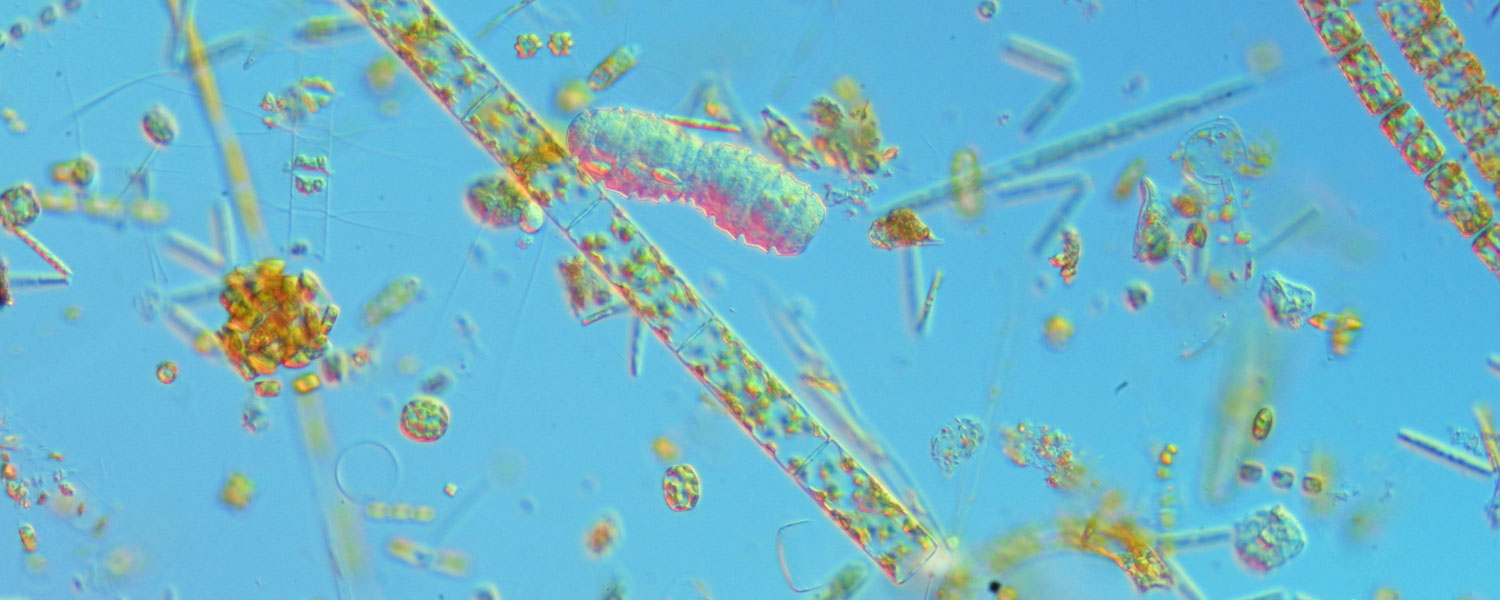
At the base of the Arctic food web, there are three major primary producers: small flagellates, diatoms living in open water (pelagic) and diatoms growing in sea ice (sympagic). The role of the sea ice diatoms is perceived differently across the research community. For ecologists they are central to the polar ecosystem, while those looking at global ocean scales consider them less important and have not incorporated them into their models projecting climate change feedbacks.
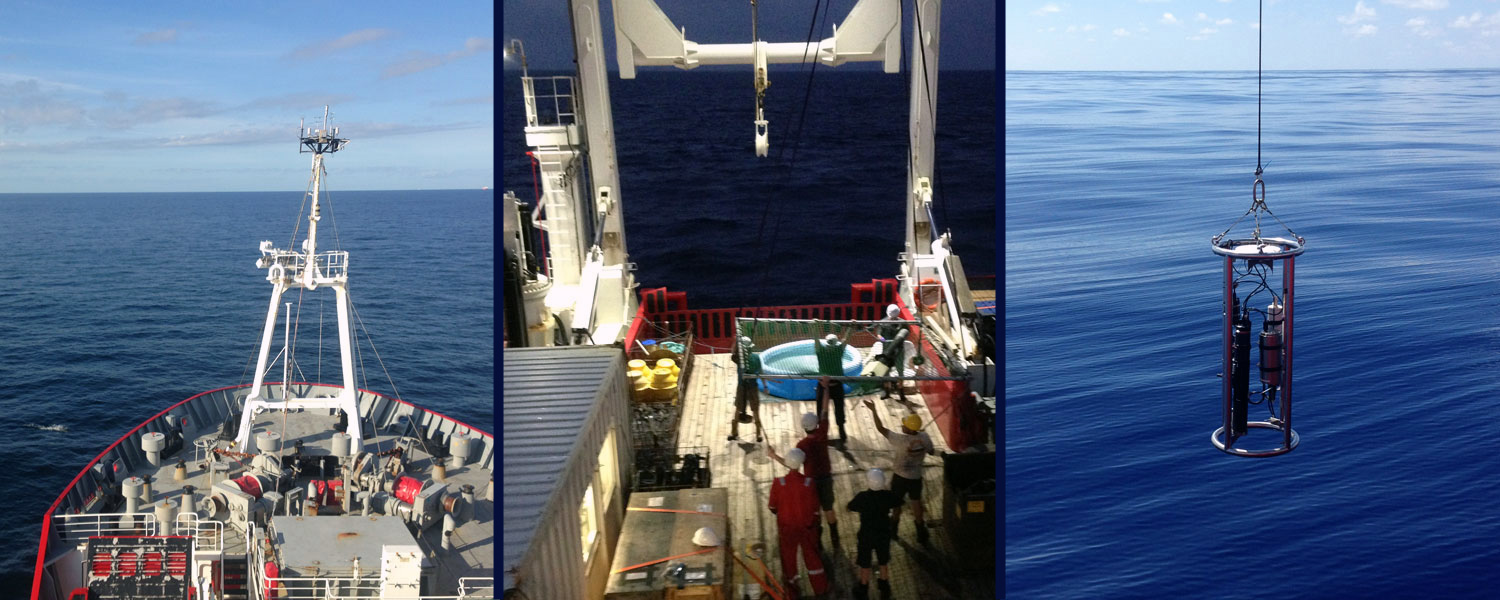
Atlantic Meridional Transect Ocean Flux from Satellite Campaign (AMT4OceanSatFlux)
The AMT4OceanSatFlux project will measure the flux of carbon dioxide (CO2) between the atmosphere and the ocean utilising a state-of-the-art eddy covariance technique along the length of the Atlantic Ocean on board the 28th Atlantic Meridional Transect (AMT) cruise. These measurements will be then used to validate a range of satellite products in order to gain regional and global estimates of gas exchange between the atmosphere and ocean.

Ship emissions are significant sources of polluting aerosols in coastal regions, causing hundreds of thousands of premature deaths per year globally. To address this, in 2015 the International Maritime Organization (IMO) ordered a reduction in the maximum ship sulphur emissions in coastal Sulphur Emission Control Areas (SECAs) of Europe and North America. From January 2020 this will be expanded to international waters, to reduce sulphur emissions from 3.5% to 0.5% of fuel mass.

Optical data modelling and assimilation (OPTIMA)
OPTIMA will advance the capacity of the Copernicus Marine Environment Monitoring Service (CMEMS) to accurately assess the state of the marine environment, by developing the first ever system that assimilates ocean-colour absorption data of plankton functional types into an ecosystem model which includes a new bio-optical module.

Changing Arctic Carbon cycle in the cOastal Ocean Near-shore (CACOON)
The Arctic Ocean is a rapidly changing environment, with rising temperatures leading to an ongoing decline in sea ice and shifting conditions for marine life. Despite the presence of important and complex ecosystems in Arctic waters, there are knowledge gaps in how the Arctic Ocean and its inhabitants will be impacted upon and respond to global climate change.
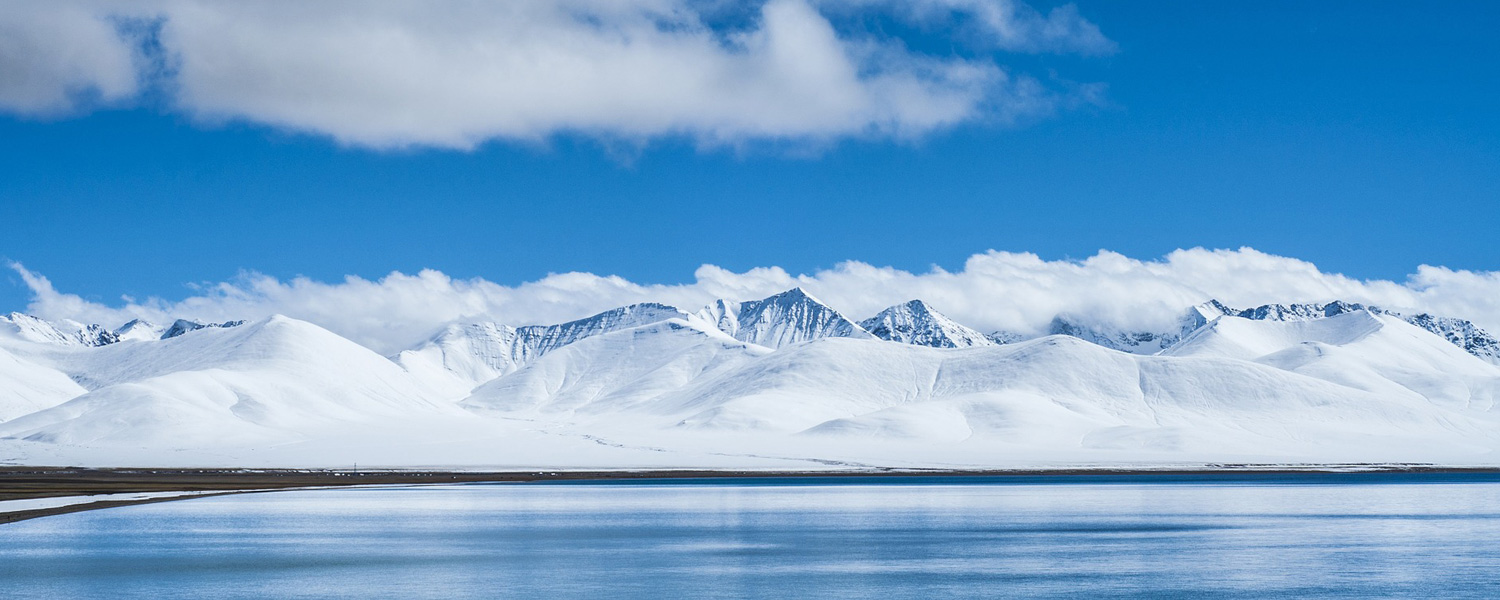
Pathways and emissions of climate-relevant trace gases in a changing Arctic Ocean (PETRA)
The Arctic Ocean is a rapidly changing environment, with rising temperatures leading to an ongoing decline in sea ice and shifting conditions for marine life. Despite the presence of important and complex ecosystems in Arctic waters, there are knowledge gaps in how the Arctic Ocean and its inhabitants will be impacted upon and respond to global climate change.
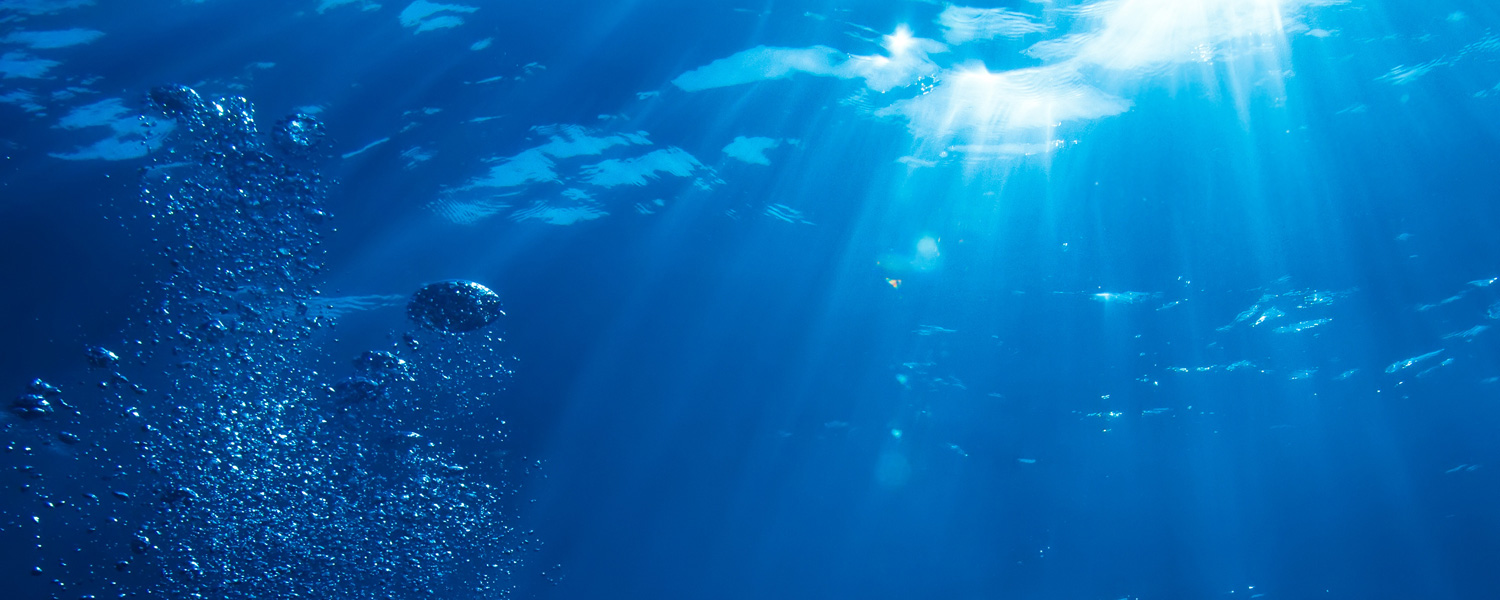
Is bacterial DMS consumption dependent on methylamines in marine waters?
Dimethylsulfide (DMS) is a key ingredient in the cocktail of gases that makes up the ‘smell of the sea’. Around 300 million tons of DMS are formed each year by single-celled organisms in the surface ocean.
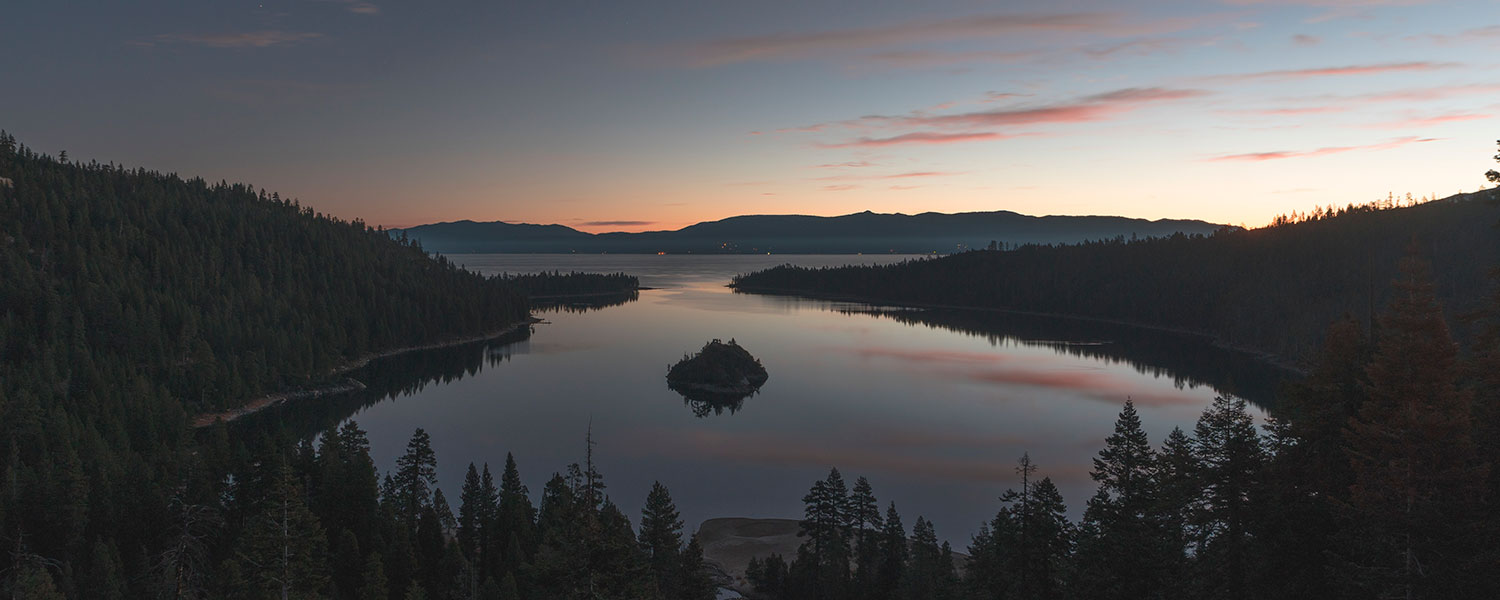
Funded by EU H2020, MONOCLE brings together 12 partners from across Europe to create sustainable in situ observation solutions for Earth Observation (EO) of optical water quality in inland and transitional waters.
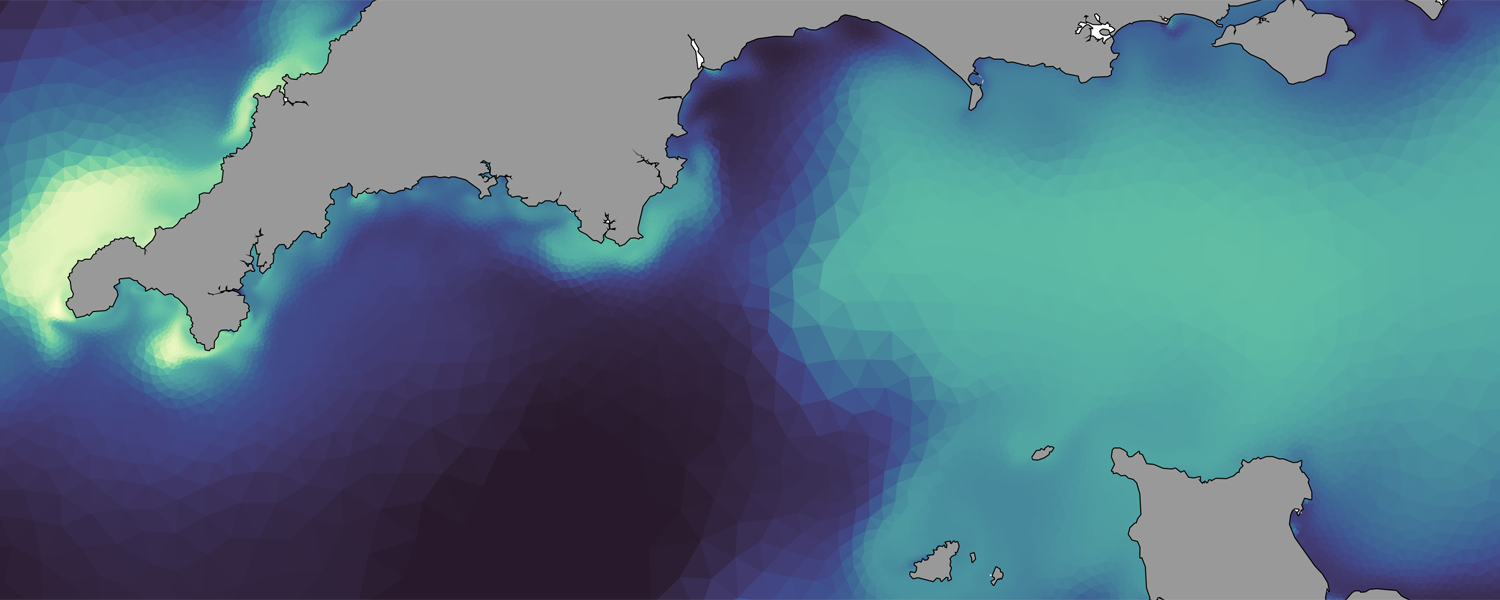
Combining Autonomous observations and Models for Predicting and Understanding Shelf seas
CAMPUS is a three-year project (2018–2021), funded by the Natural Environment Research Council, combining state-of-the-art computer modelling with innovative observational systems utilising the latest technologies.
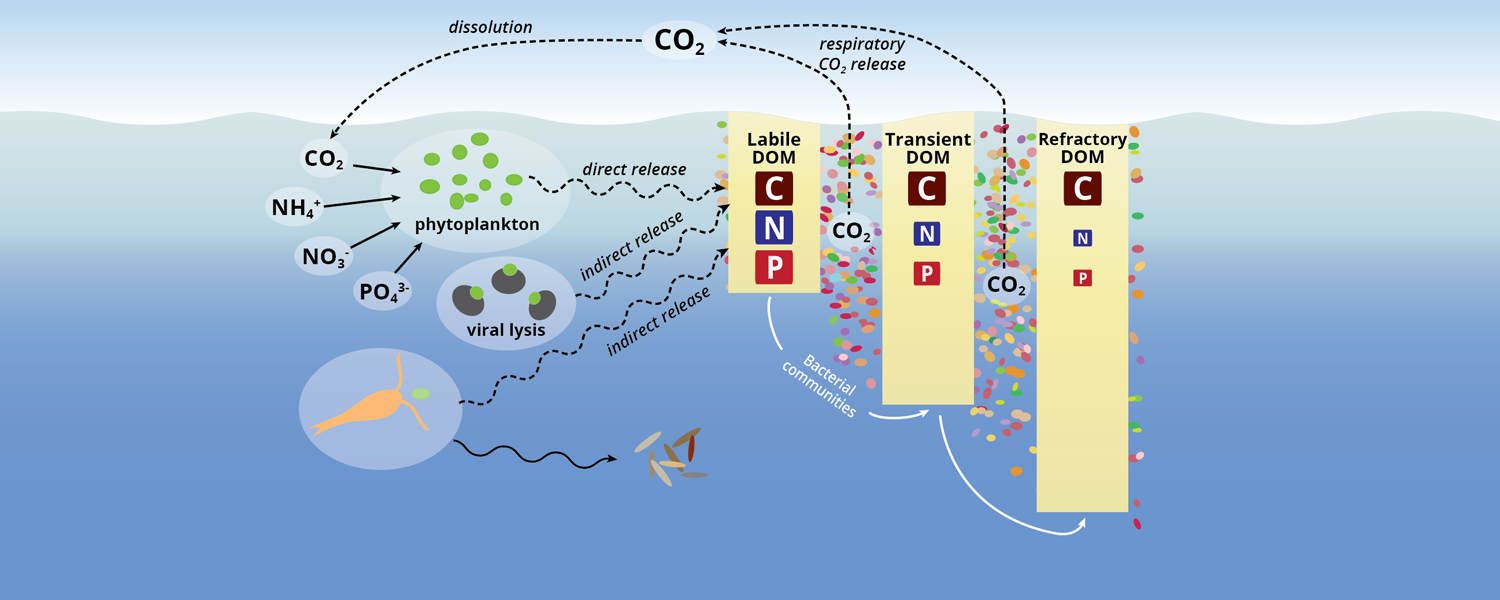
Microbial carbon pump in a changing ocean: building models for the future
This project will conduct laboratory experiments to provide the physiological information and understanding needed to develop the first ever model describing the microbial carbon pump (MCP) and its relationship with nutrient concentrations and temperature. This will be the first critical step towards the simulation of the MCP in present and future oceans. To achieve this ambitious goal, the project will bring together a multidisciplinary team of internationally recognised scientists, from chemical analysts to system biology and ecosystem modellers.

Lake Vembanad is the largest body of water in Kerala, India, stretching almost 100km in length and spanning an area of over 2000km2. Its shores are home to 1.6 million people, many of whom depend on the waters for their livelihoods. The lake provides essential income to the inhabitants of the area through tourism, cottage industries, agriculture and fisheries.
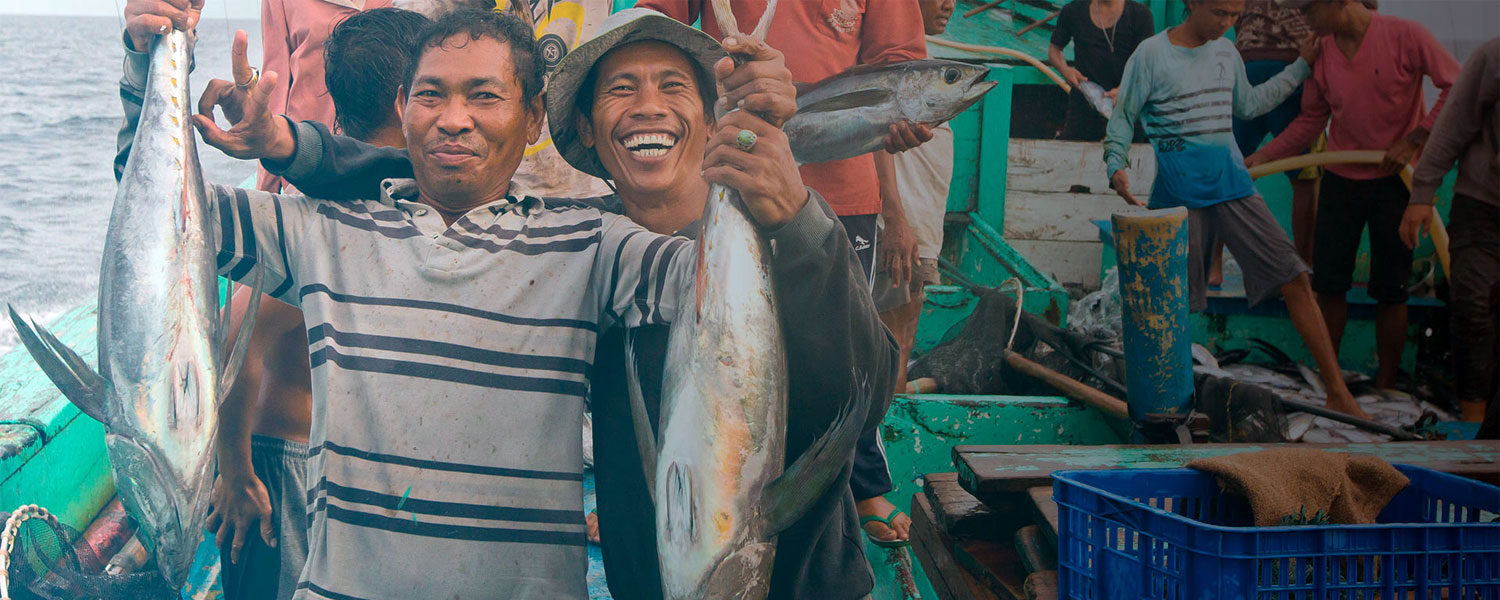
GCRF Blue Communities is a 4 year research capacity-building programme for marine planning in East and South-East (E/SE) Asia, funded by UK Research and Innovation’s £225 million Global Challenges Research Fund (GCRF). The programme has 12 interconnected research projects, which will be actively integrated to support marine planning, and 10 cross-cutting capacity building activities.

Resolving Climate Impacts on shelf and CoastaL sea Ecosystems (ReCICLE)
Shelf and coastal seas provide vital services for society, notably food, from fish, and climate regulation, through their role in drawing down and storing atmospheric CO2. The ecosystems of these seas are vulnerable to global climate change, arising from greenhouse gas emissions. Being able to provide reliable future projections of the impacts of climate change on these regions is therefore vital for our knowledge of how these services may be impacted.

N-OSmolytes Across the Surface Southern Ocean: Environmental Drivers and Bioinformatics
Marine organisms accumulate osmolytes in response to stress and release them when environmental conditions change due to viral attack, grazing or change of salinity. These released osmolytes serve as essential nutrients for marine microorganisms.

Ocean color and biogeochemistry (CBIOMES)
Earth observation of ocean color remains our only window into the pelagic ecosystem at synoptic scales. It is a rich source of data, and chlorophyll concentration is the principal product, which provides valuable information on how the light from the sun (the energy source for the entire ecosystem) is coupled to the marine biota through the pigments contained in phytoplankton.

Pre-ACT is a €5.2M project led by the Norwegian research institute Sintef. The objective of Pre-ACT is to equip operators and regulators of carbon capture and storage with decision support protocols that enable them to establish safe and efficient monitoring systems and to quantitatively assess storage conformance.
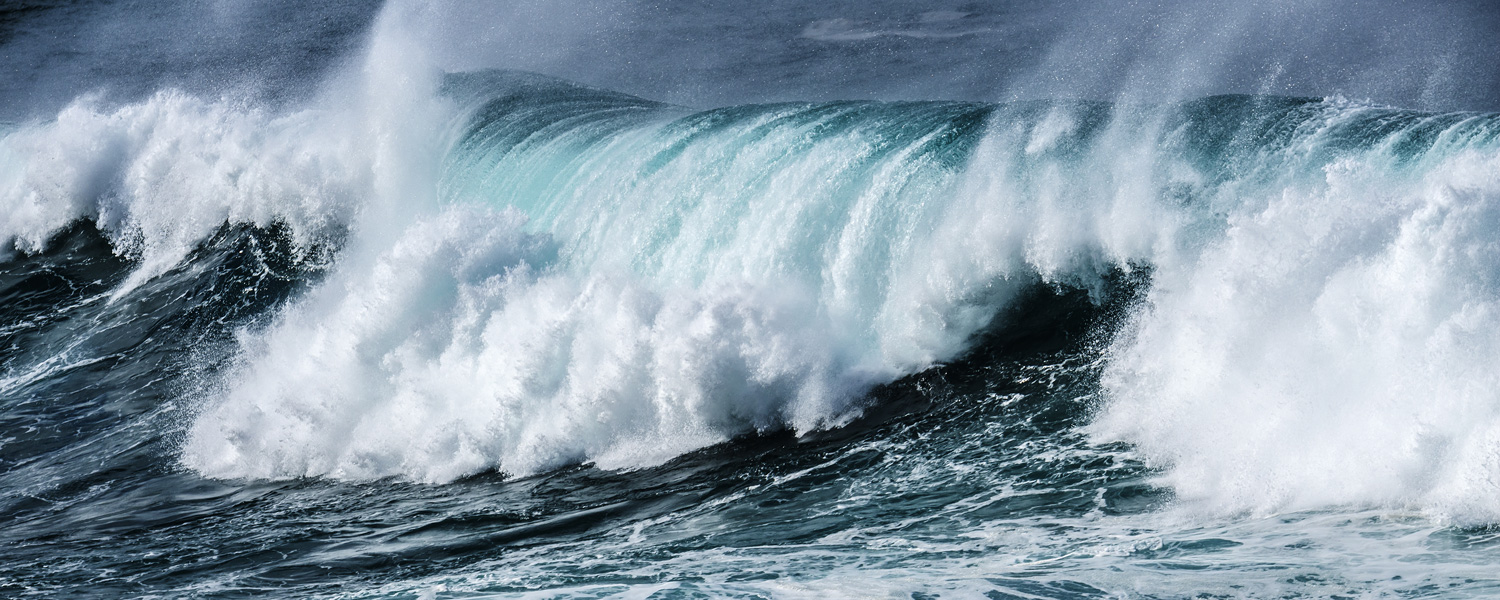
An Alternative Framework to Assess Marine Ecosystem Functioning in Shelf Seas (AlterEco)
AlterEco aims to develop a new observational framework based upon the latest marine autonomous systems (MAS) to improve the spatio-temporal understanding of key shelf sea ecosystem drivers. This will be achieved through a sustained observational campaign in the North Sea, covering a 14 month period from winter-to-winter, providing repeat transects over a region sufficiently large to capture typical shelf sea mesoscale features and processes.
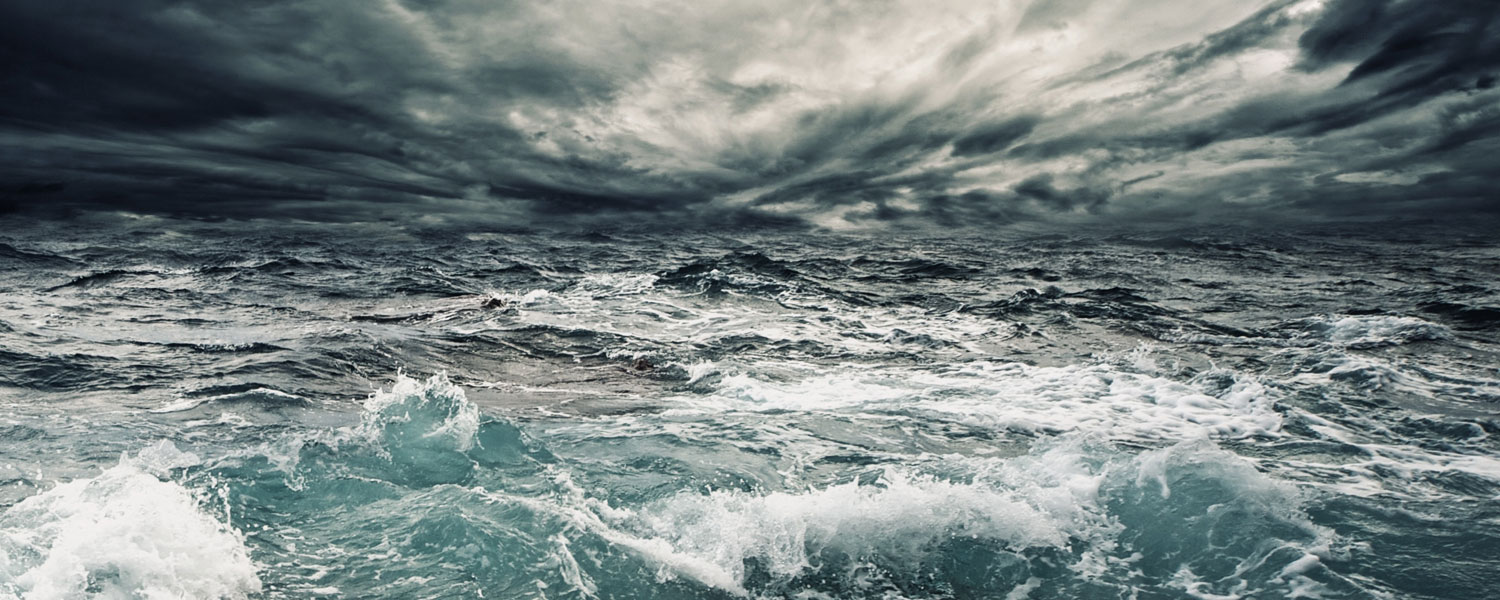
MyCOAST will develop risk management tools and a Coordination Atlantic Coastal Operational Observatory to improve coastal monitoring and forecasting tools to support threat and emergency response by in the Atlantic area.
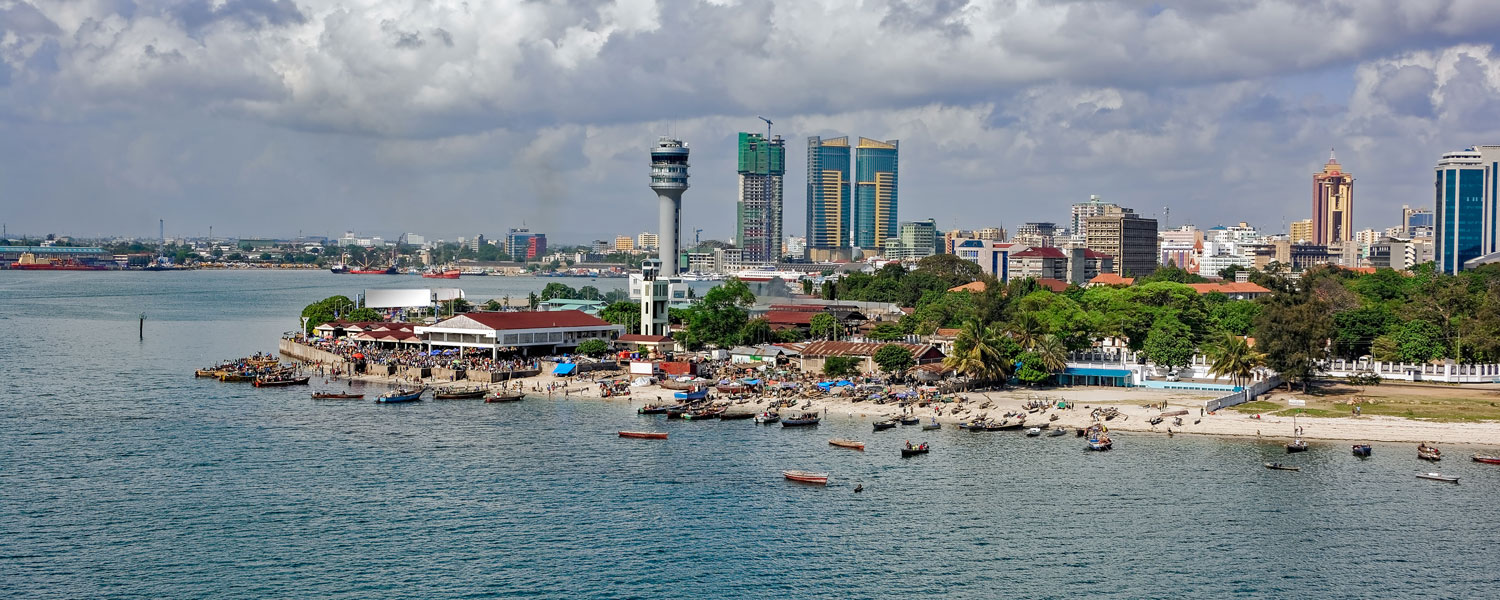
The coastal and marine environments of South East Asia and the Western Indian Ocean (the regional foci of ACCORD) are rich and diverse, possessing high levels of biodiversity and productivity. However, the coastal ecosystems and the services they provide are under threat from growth in human activities, global markets, the desire for economic growth, and the less direct impact of global climate change. This affects both the resilience of living resources to pressures and the ecosystem services we derive from them.
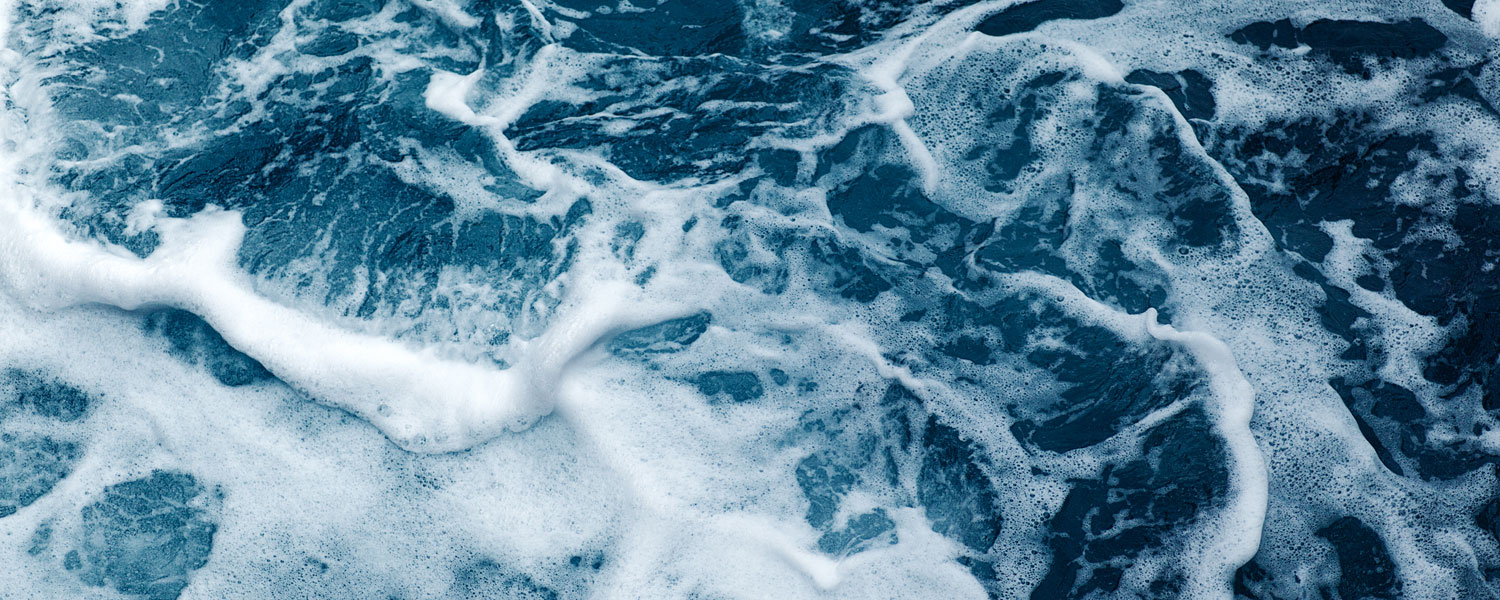
A billion tonnes of the dimethylsulfoniopropionate (DMSP) is made each year by marine phytoplankton, seaweeds, corals, coastal plants and marine bacteria. DMSP has key roles in marine ecosystems when released into the environment, serving as an osmoprotectant and key nutrient for marine microbial communities. DMSP is also the main precursor of the climate-cooling gas dimethylsulfide (DMS), of which around 10% of that produced is released into the atmosphere.

PRIMROSE: Predicting Risk and Impact of Harmful Events on the Aquaculture Sector
The aquaculture sector of Europe’s Atlantic Arc is negatively impacted by the effects of harmful blooms and microbial pathogens. The PRIMROSE project will further develop ASIMUTH, a harmful algal bloom forecasting system to provide improved forecasts at a higher resolution, a wider suite of parameters, a new index based risk assessment and will encompass aquaculture from the Shetland to the Canary Islands.
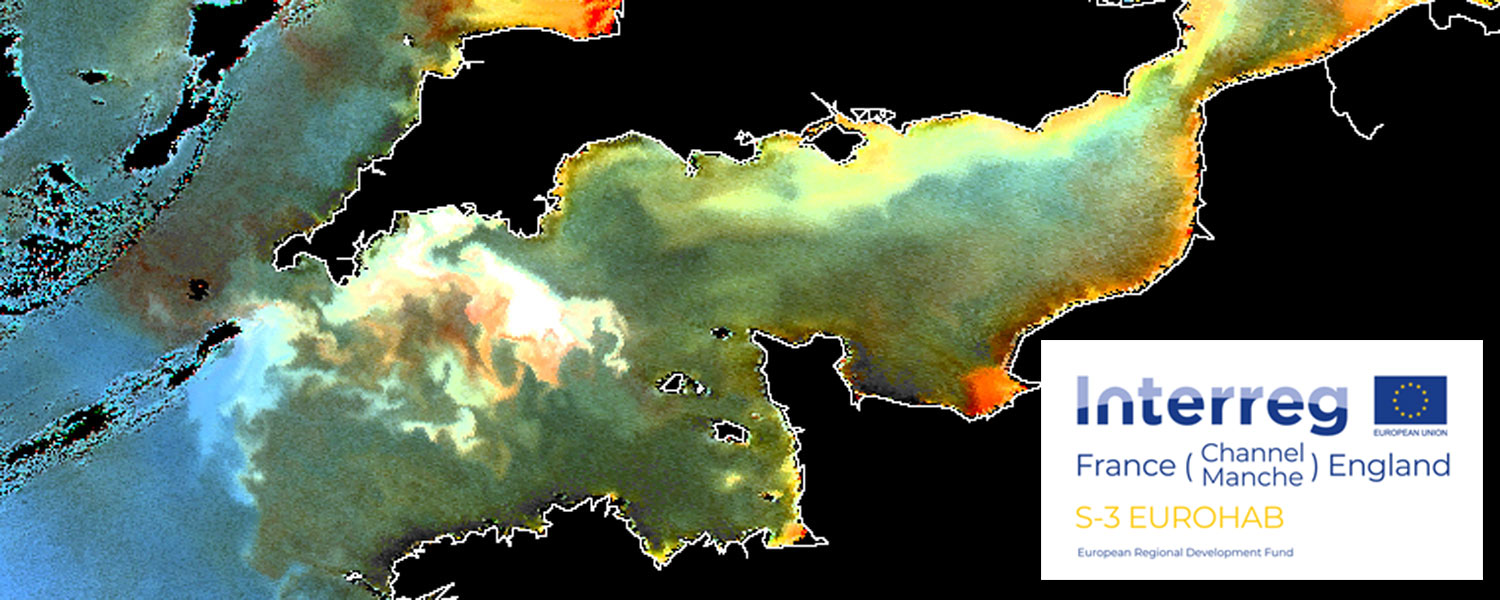
S-3 EUROHAB – Sentinel products for detecting EUtROphication and Harmful Algal Bloom events
S-3 EUROHAB will use the latest satellite technology to improve the way water quality and harmful algal blooms (HABs) are monitored in the English Channel.
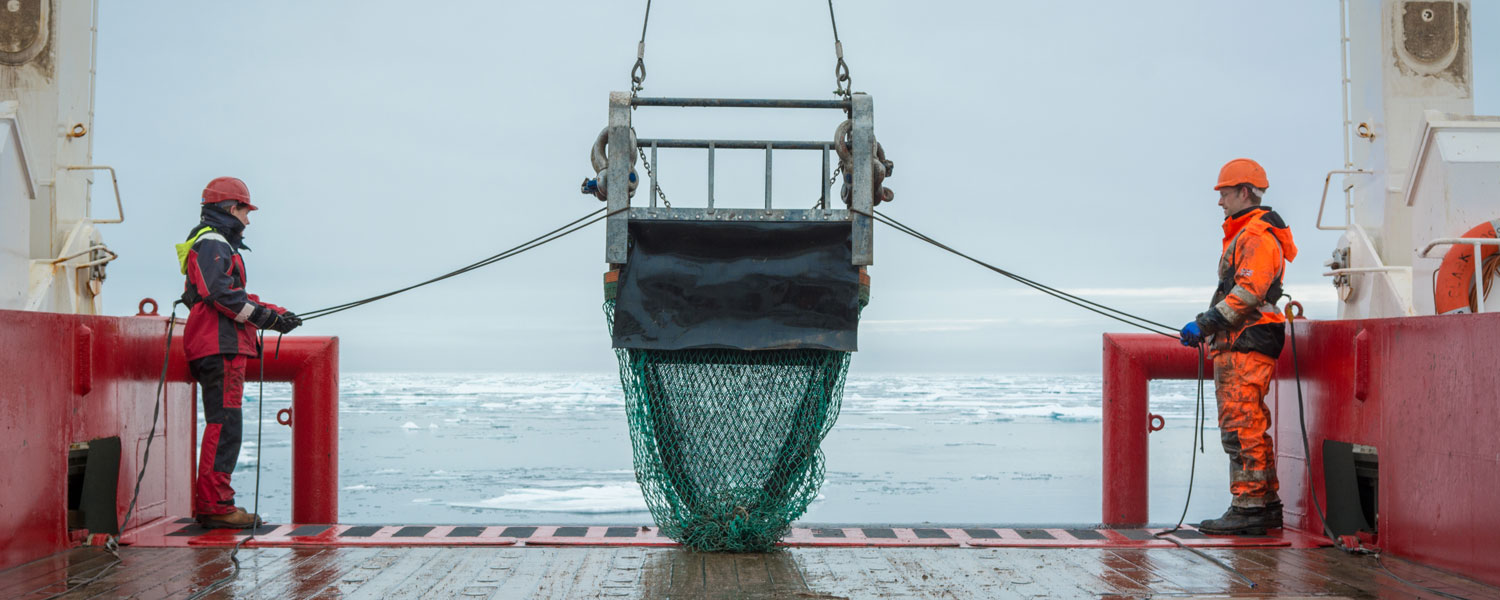
The ChAOS project will focus on how climate change and diminishing sea ice affects impact biological communities, biogeochemical processes and ecosystems in the seafloor environment.
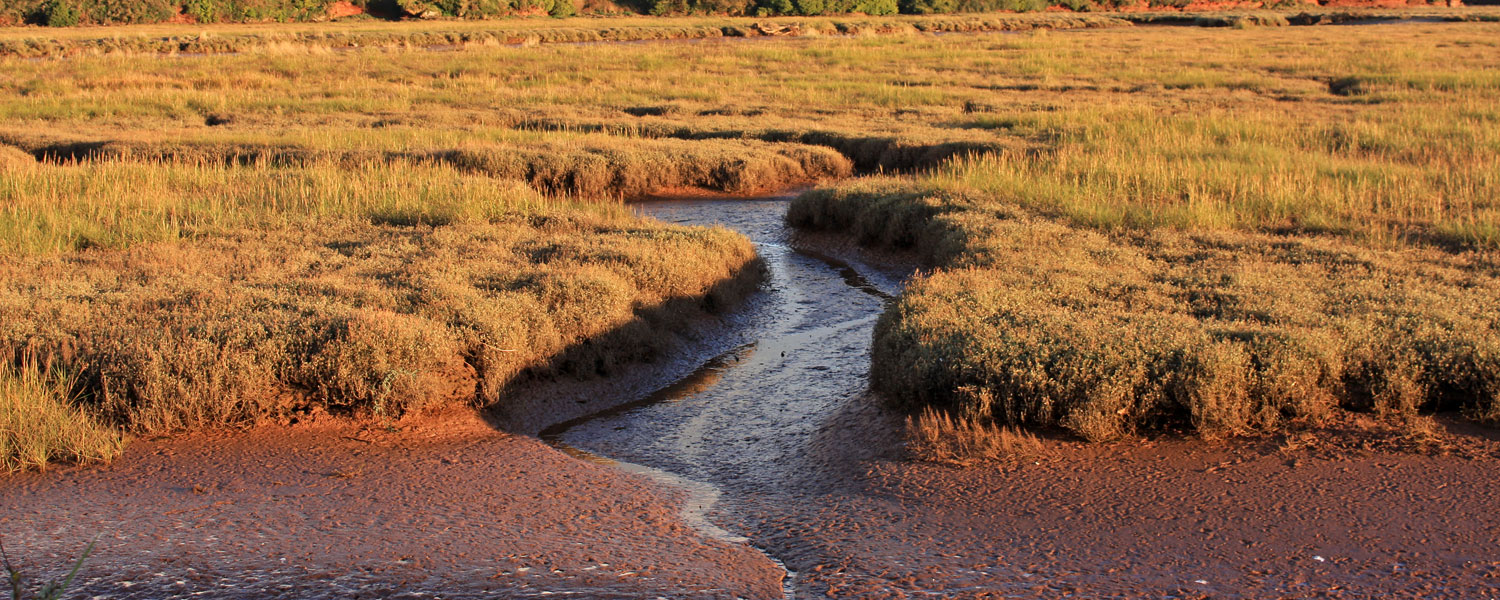
Land ocean carbon transfer (LOCATE)
Our climate, and hence our lifestyle and economy, is profoundly influenced by the concentration of carbon dioxide in our atmosphere, which regulates the amount of heat which arrives on earth from the sun that returns to outer space.
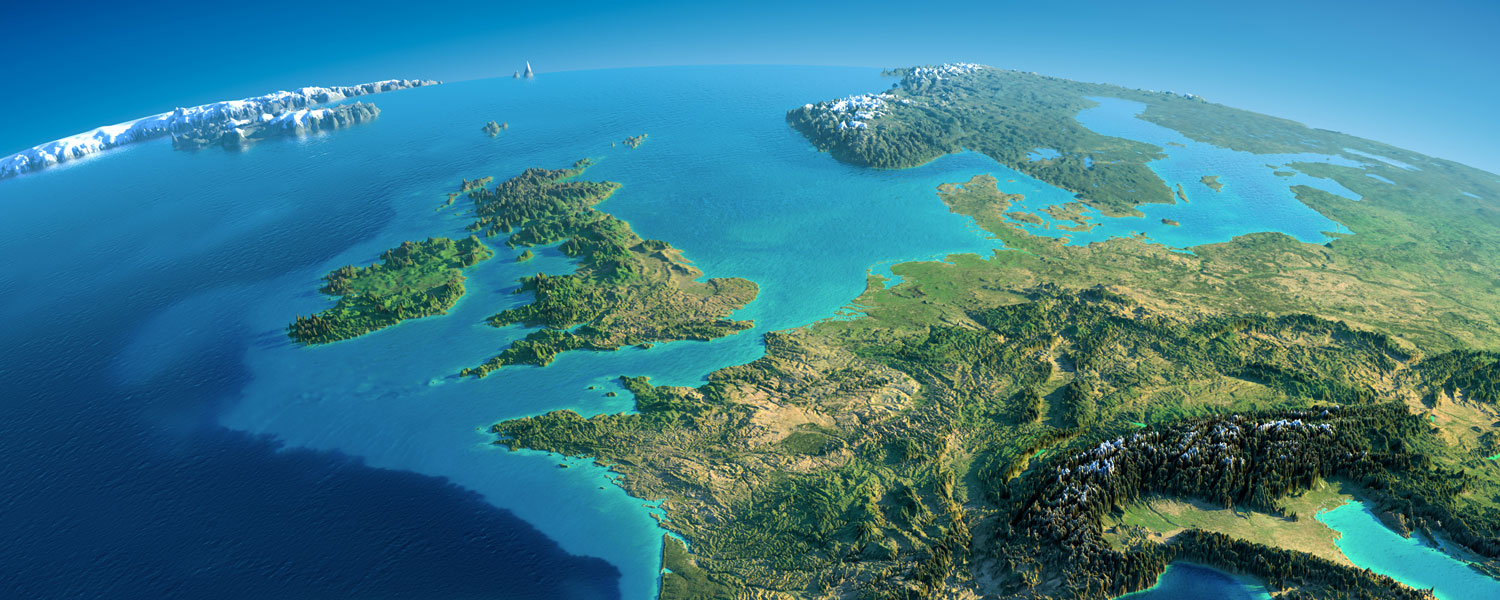
North Atlantic climate system integrated study (ACSIS)
Major changes are occurring across the North Atlantic climate system: in ocean and atmosphere temperatures and circulation, in sea ice thickness and extent, and in key atmospheric constituents such as ozone, methane and particles known as aerosols. Many observed changes are unprecedented in instrumental records. Changes in the North Atlantic directly affect the UK’s climate, weather and air quality, with major economic impacts on agriculture, fisheries, water, energy, transport and health. The North Atlantic also has global importance, since changes here drive changes in climate, hazardous weather and air quality further afield, such as in North America, Africa and Asia.
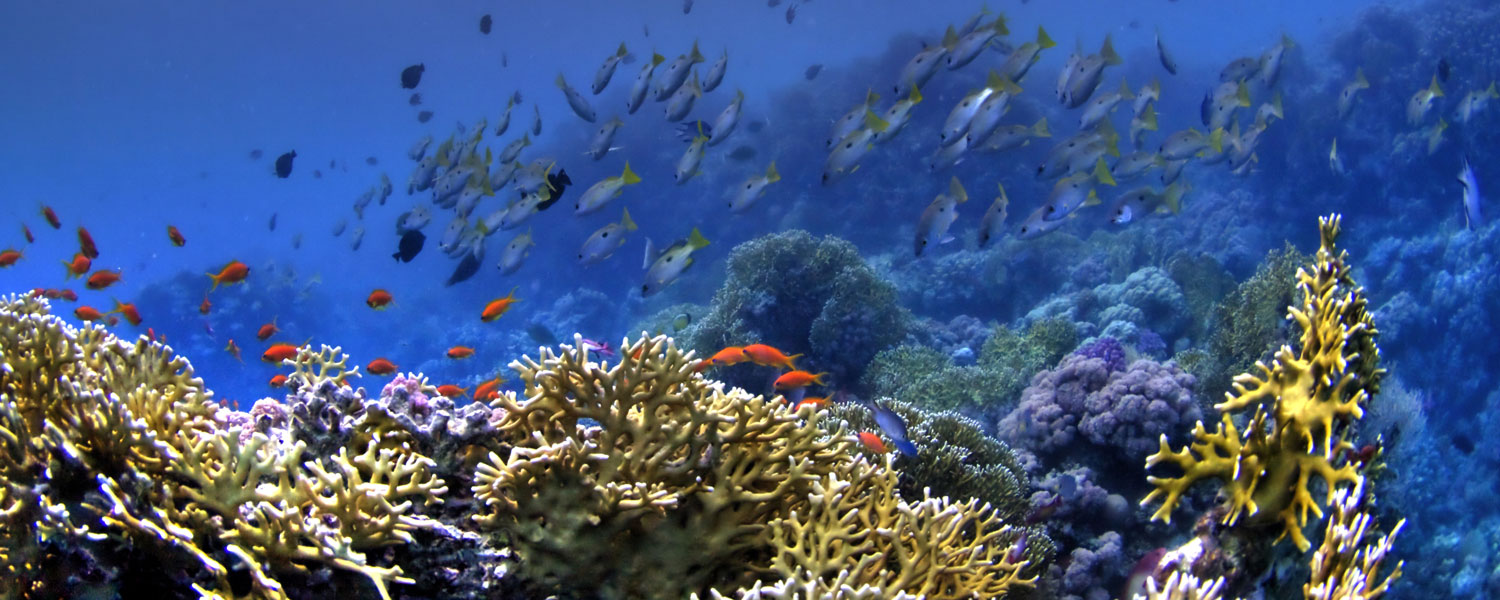
SOLSTICE – WIO is a four year collaborative GCRF project that aims to strengthen capacity in the Western Indian Ocean (WIO) region to address challenges of food security and sustainable livelihoods for coastal communities.
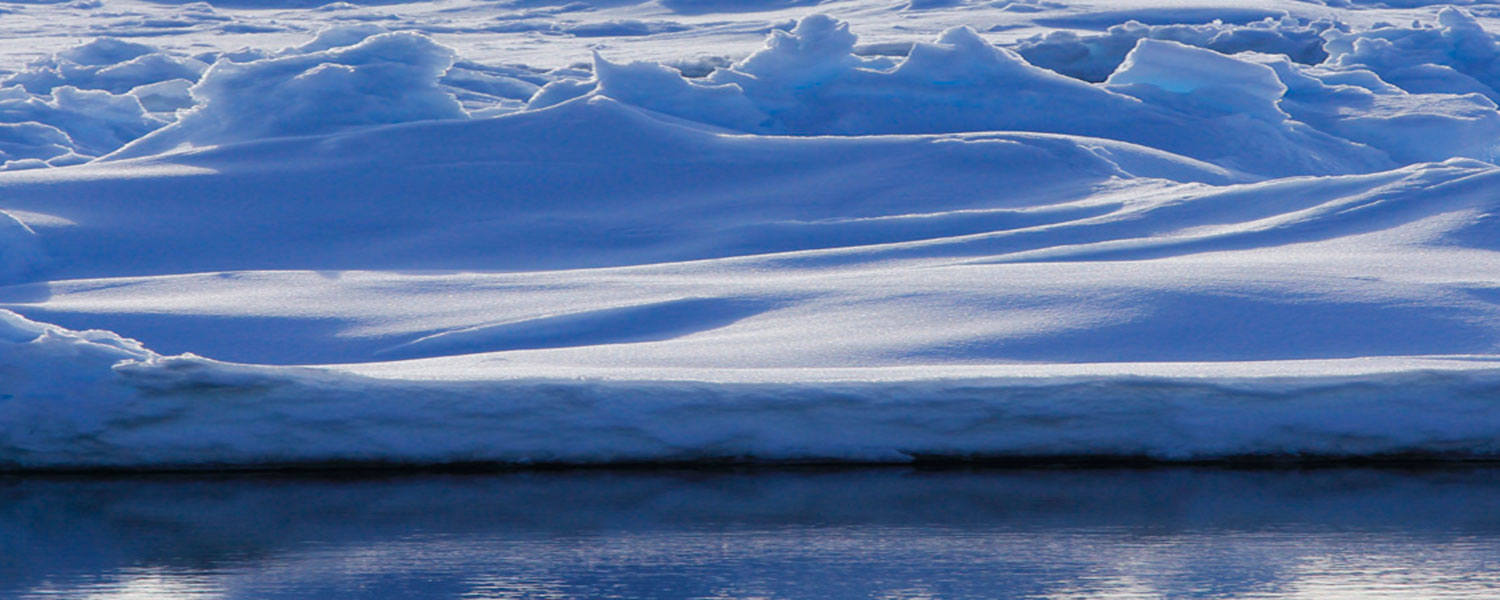
The vast, remote seas which surround the continent of Antarctica are collectively known as the Southern Ocean. This region with its severe environment of mountainous seas, winter darkness, strong winds, freezing temperatures and ice is unsurprisingly one of the least explored and under-observed parts of the global ocean. However, because of these extremes, it plays a large and still unquantified role in Earth’s climate system.

UK Earth System Modelling (UKESM)
Global climate change is one of the leading environmental threats facing mankind. To develop appropriate mitigation and adaptation strategies requires accurate projections of the future state of the Earth’s climate.
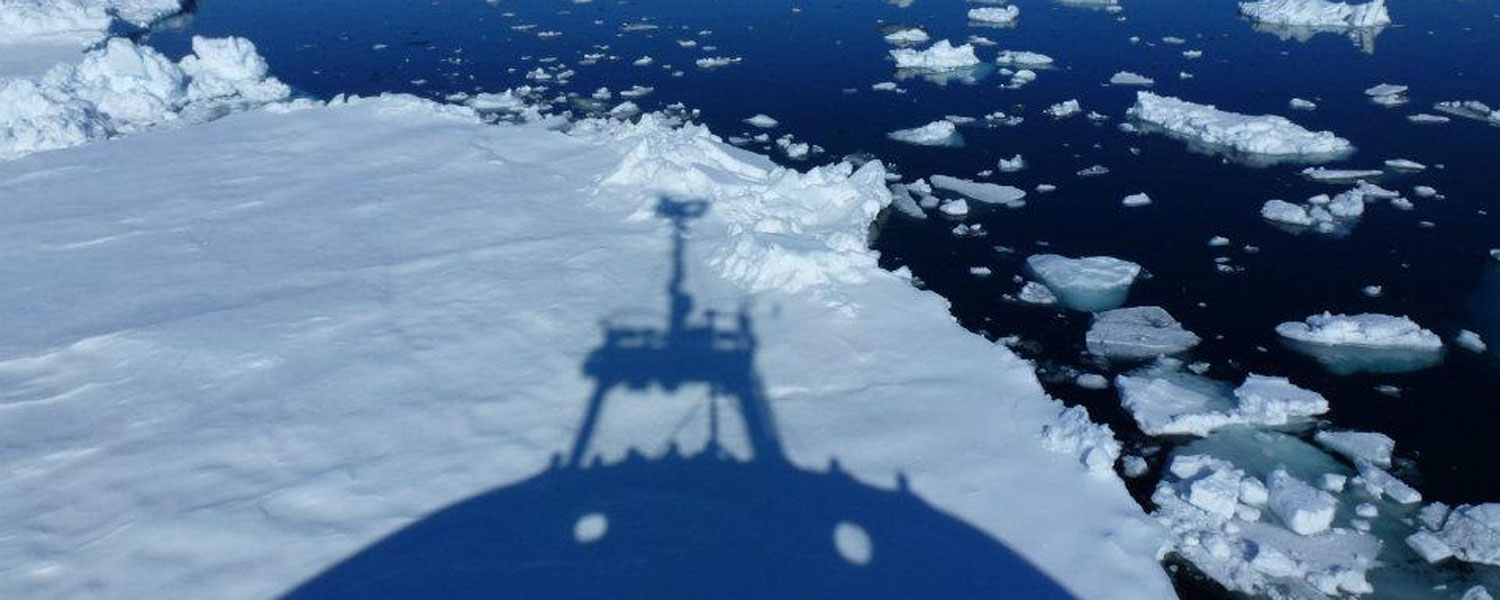
Ocean Regulation of Climate through Heat and Carbon Sequestration and Transports (ORCHESTRA)
Climate change is one of the most urgent issues facing humanity and life on Earth. Better predictions of future climate change are needed, so that measures to reduce its impact and cope with its effects can be put in place. However, improving these predictions requires better knowledge of how the global climate system functions, and this knowledge is currently incomplete. A critical gap concerns understanding of the uptake of heat and carbon by the oceans.
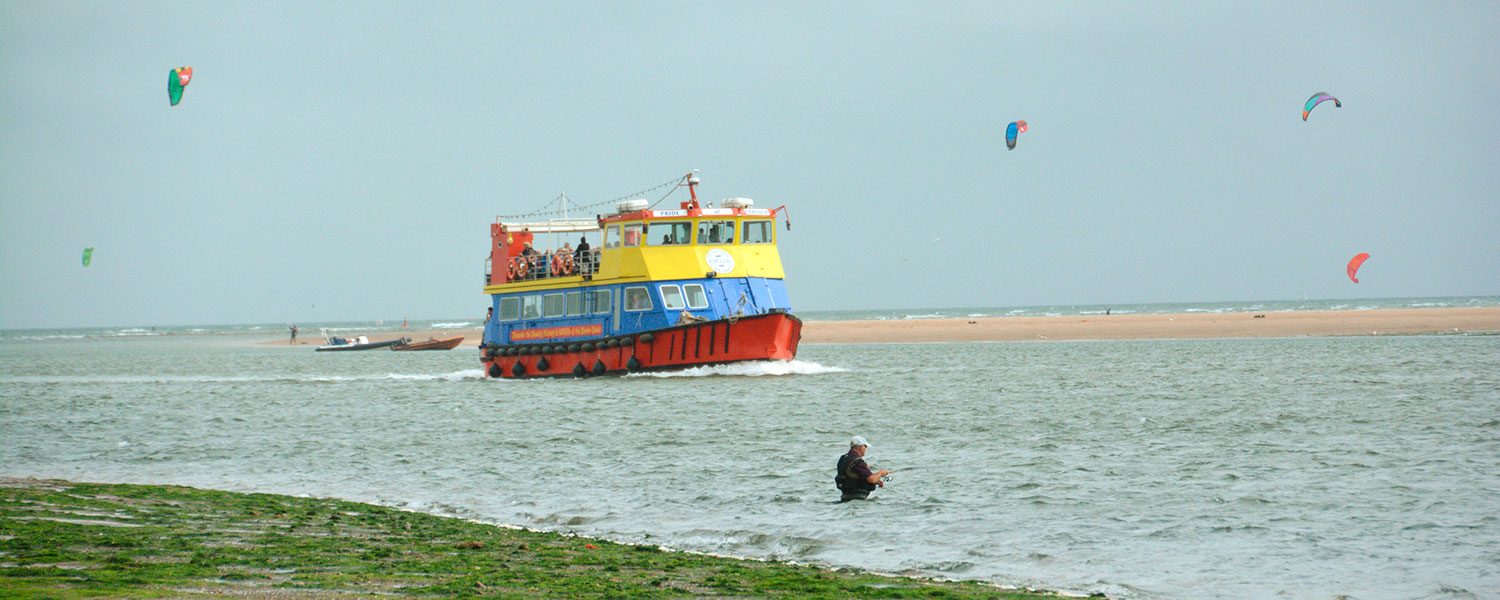
South West Partnership for Environment & Economic Prosperity (SWEEP)
SWEEP is a new initiative that will help deliver economic and community benefits to the South West, whilst also protecting and enhancing the area’s natural resources.
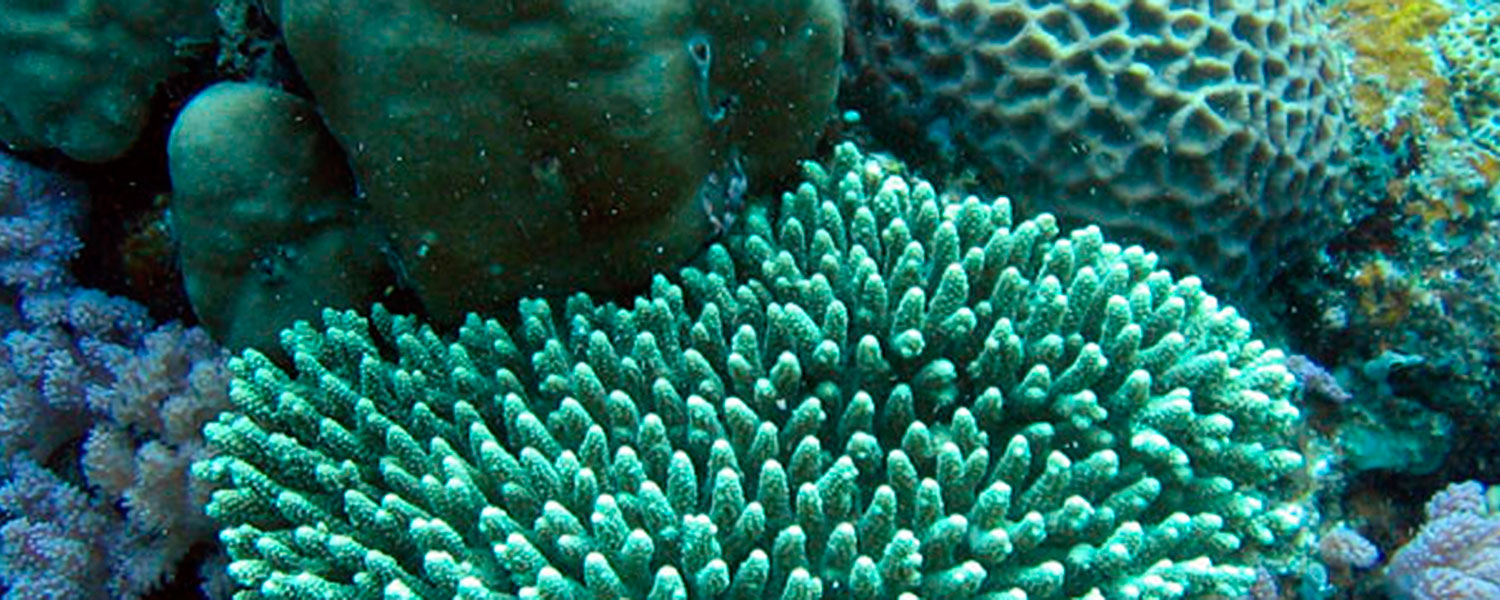
Improving the resilience of communities and coral reefs to changes anticipated as a result of climate change is an issue of huge global importance. Hundreds of millions of people rely on coral reefs to provide essential services such as food and coastal protection. These ecosystems also contribute significantly to national economies through sectors such as tourism.
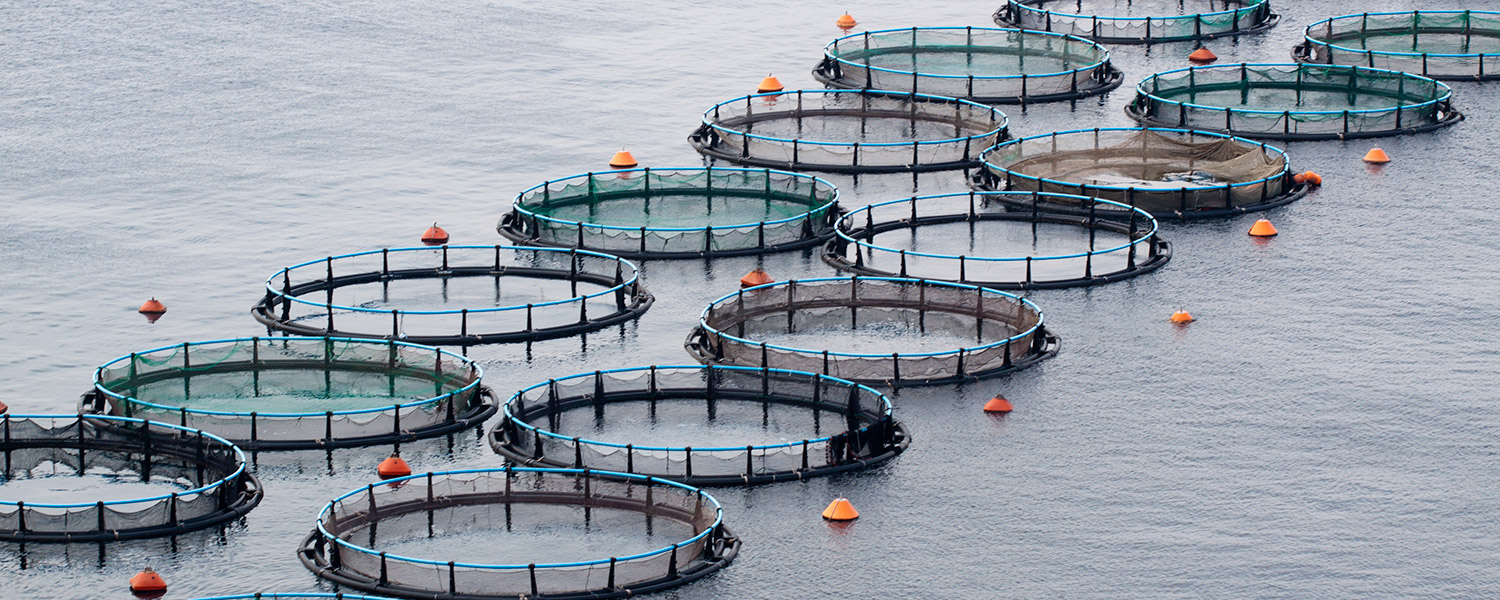
Tools for Assessment and Planning of Aquaculture Sustainability (TAPAS)
The Tools for Assessment and Planning of Aquaculture Sustainability (TAPAS) project is working to create cost-efficient management tools and practices for the European aquaculture sector to investigate the limits to fish farming activity in a location, social interactions, potential environmental impacts and any future risks.

Strategies for Environmental Monitoring of Marine Carbon Capture and Storage (STEMM-CCS)
STEMM-CCS was an ambitious multi-disciplinary project to deliver new approaches, methodologies and tools for the safe operation of offshore carbon dioxide capture and storage (CCS) sites.
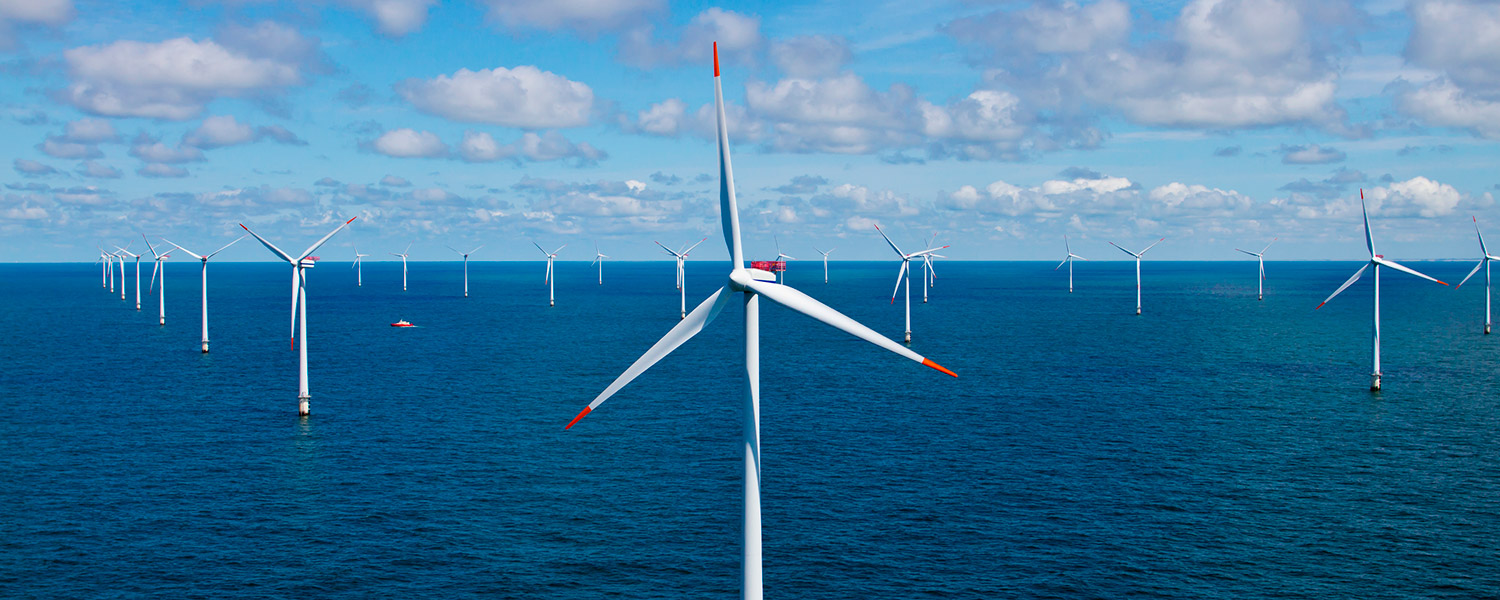
ADdressing Valuation of Energy and Nature Together (ADVENT)
Advent is a UK Energy Research Centre Grand Challenge project exploring future UK low carbon energy pathways and quantifying their differing implications for stocks of natural capital and the provision of ecosystems services.

The ShellEye project will use Earth observation data from satellites and environmental data, such as weather forecasts, to monitor and forecast water quality for the aquaculture industry towards providing an early warning system for harmful algal blooms, and bacterial and viral pollution.

Sea level Climate Change Initiative (CCI)
The main objective of the sea level CCI project is to produce and validate a Sea Level Essential Climate Variable (ECV) product. It represents the first phase of the ESA Climate Change Initiative program that aims at setting up in a second phase an "operational processing capacity of Earth Observation data".

Western Channel Observatory (WCO)
The Western Channel Observatory (WCO) is an oceanographic time-series and marine biodiversity reference site in the Western English Channel. In-situ measurements are undertaken weekly at coastal station L4 and fortnightly at open shelf station E1 using our research vessels and that of the Marine Biological Association (MBA). The WCO measures several factors crucial to the functioning of the marine ecosystem, such as light, temperature, salinity and nutrients.

NERC Earth Observation Data Analysis and Artificial-Intelligence Service (NEODAAS)
Plymouth Marine Laboratory have provided satellite data to support researchers since the 1990s and the range of services offered has been constantly evolving to meet their needs and the technology available. NEODAAS was recommissioned in 2019 by NERC for five years as part of their Services and Faculties portfolio and is overseen by the National Centre for Earth Observation.

ERSEM (European Regional Seas Ecosystem Model)
An ecosystem model is an abstract, usually mathematical, representation of an ecological system, which is studied to gain understanding of the real system. ERSEM addresses biogeochemical and ecological systems in many applications in global regional seas and more recently the global ocean, engaging in a range of problem solving, predictive and impact studies.

Atlantic Meridional Transect (AMT)
The Atlantic Meridional Transect (AMT) multidisciplinary programme, which undertakes biological, chemical and physical oceanographic research during an annual voyage between the UK and destinations in the South Atlantic.

NERC Airborne Research Facility (NERC-ARF)
Airborne remote sensing provides an efficient method for the rapid collection of data over a specified area, as a cost effective means of monitoring the environment around us.

